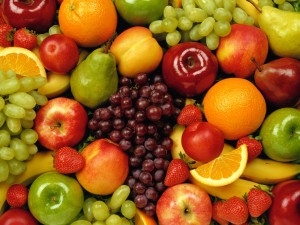 Yes, according to Pregnancy Examiner! Lackluster nutritional habits and deficiencies may impair hormonal function and inhibit proper ovulation in women, or sperm production and viability in men, thus reducing the chances for conception.
Yes, according to Pregnancy Examiner! Lackluster nutritional habits and deficiencies may impair hormonal function and inhibit proper ovulation in women, or sperm production and viability in men, thus reducing the chances for conception.
On the journey to parenthood, fertility issues are split pretty evenly between men and women. It’s important to visit a doctor, OB/GYN or fertility specialist, who can run tests and do blood work to diagnose any underlying obstacles that need to be addressed in order to get pregnant. But in addtion to these efforts, there are dietary choices that can help boost fertility for both men and women.
Fertility Boosters for Her
Water: Staying hydrated helps maintain optimal health and proper reproductive function.
Spinach: Leafy green vegetables like spinach contain folic acid which is important for preventing birth defects and is a vital ingredient for producing viable eggs. It is also rich in antioxidants and iron.
Yellow and Orange Vegetables: Beta carotene, an antioxidant, has been shown to maintain hormonal balance and ward off miscarriage.
Broccoli and Cabbage: Cruciferous vegetables contain a phytonutrient called DIM that helps with estrogen metabolism. They are also known to prevent fibroids and endometriosis in women.
Carrots, peas and sweet potatoes: Containing beta-carotene, these veggies help regulate the menstrual cycle, thus improving chances for conception.
Strawberries, blueberries, oranges, papaya, kiwi and cantaloupe – Full of vitamin C and antioxidants, these fruits offer healthful reproductive benefits to women trying to conceive.
Meat, chicken, fish, eggs and dairy products: Protein is made up of amino acids which are vital for viable egg production and for making LH and FSH, important fertility hormones. NOTE: Scientific research suggests women who get more of their protein from PLANTS and less from animal sources have fewer overall ovulatory issues.
Whole grains: Try to consume natural unrefined whole grain bread products, as the refining process removes more than 15 key nutrients, such as B vitamins and iron.
Oysters: With an abundant amount of zinc, oysters are known fertility enhancer, however high mercury levels from seafood have been linked to miscarriage. Think moderation.
Fertility Boosters for Him
Water – To maintain optimal health and proper reproductive functions, one must remain optimally hydrated.
Spinach* – Rich in antioxidants and full of folic acid and iron, leafy green vegetables are a vital ingredient for healthy sperm.
Red vegetables* – Containing lysopene, tomatoes are a carotenoid and are a known sperm count enhancer.
Fruit* – Oranges contain the antioxidants glutathione and cryptoxanthin, which are associated with strong, viable, healthy sperm. Strawberries, blueberries, cantaloupe and papaya offer wonderful healthful benefits as well.
Meat, chicken, fish, eggs and dairy products (Protein) – The amino acids in protein are vital for sperm production.
Oysters – With an abundant amount of zinc, oysters are known fertility enhancer. Be certain to monitor mercury levels when consuming seafood. One Dutch study cites sperm production increase by up tp 74% by using a zinc and folic acid supplement.
Vegetarian sources of protein – Beans, lentils, brown rice, quinoa and other whole grains, nuts and seeds.
Pumpkin seeds and sunflower seeds – Pumpkin seeds (¼ to ½ cup a day) are naturally high in zinc and essential fatty acids which are vital to healthy functioning of the male reproductive system. Sunflower seeds are a great source of protein, which is also vital for optimal sperm production.
Whole grains – Try to consume natural unrefined whole grain bread products, as the refining process removes more than 15 key nutrients from grains such as B vitamins and iron.
Organic foods – Switch to organic foods. Some studies suggest chemicals and pesticides used on foods can impair sperm viability.
*Studies have indicated the more fruits and produce a man consumes, the less sluggish his sperm is.
Source: Pregnancy Examiner





